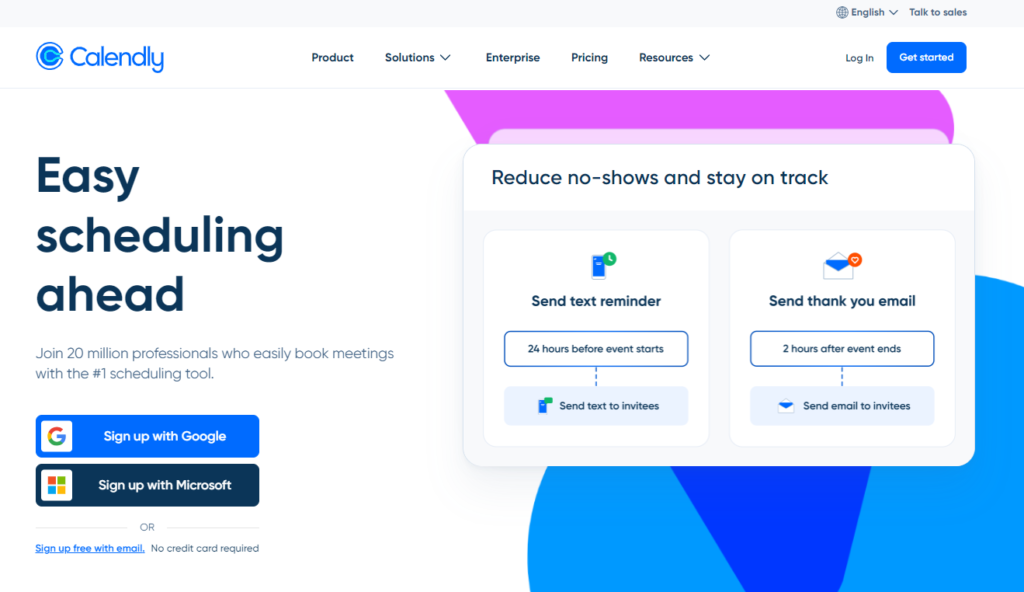
Wondering how to kickstart your very own career coaching service but not sure where to start? Maybe you’ve been the go-to person for career advice among your friends and family, and now you’re wondering if you can turn that into a profitable business. Here’s the good news: you absolutely can. With the right strategies, tools, and mindset, launching a career coaching business is not only possible—it can also be incredibly rewarding, both personally and financially.
In this post, we’ll break down everything you need to know about how to launch a profitable career coaching service. From setting up your brand to attracting clients and scaling your business, we’ve got you covered with actionable steps and expert insights.
But first, let’s start with a story. Take Sarah, for example. She was a mid-level manager who found herself constantly giving career advice to colleagues. Eventually, she realized she had a knack for helping others navigate their careers and decided to make it official. Within two years, Sarah turned her part-time coaching gig into a six-figure business. Sounds amazing, right? That could be you with the right game plan.
Let’s dive into exactly how you can make this happen.
TL;DR
- Define your niche: Focus on a specific area of career coaching to stand out.
- Create a solid business plan: Know your services, pricing, and marketing strategies.
- Develop your personal brand: Build credibility through a website, social media, and testimonials.
- Leverage online tools: Use platforms like Calendly for scheduling and Teachable for offering online courses.
- Avoid common mistakes: Don’t set unclear goals or underprice your services.
- Scale your business: Offer group coaching, workshops, and digital products to increase profits.
Step 1: Pick Your Niche and Audience
The first step to launching a profitable career coaching service is deciding who you’re going to help. Career coaching is a broad field, and the more specific you can get, the better. While it may feel tempting to cast a wide net and help anyone looking for career advice, it’s often more profitable to focus on a niche. Why? Because potential clients are more likely to trust a specialist who offers tailored solutions for their unique challenges.
Examples of Career Coaching Niches
Finding the right niche is crucial for standing out in the competitive world of career coaching. By focusing on a specific group or problem, you can position yourself as an expert, attract more clients, and ultimately charge higher rates. Here are some niche ideas to consider:
- Career Transitions: Helping individuals switch from one industry to another. For example, you could coach someone moving from a corporate job to a startup role.
- Entry-Level Job Seekers: Guiding recent graduates or young professionals toward landing their first job.
- Executive Coaching: Assisting high-level professionals in navigating leadership roles and company politics.
- Resume and Interview Help: Specializing in job search tools like resume writing, LinkedIn optimization, and interview prep.
- Career Development for Women or Minorities: Focusing on underrepresented groups can also be a powerful niche.
By picking a niche, you establish yourself as an expert in that area, which builds trust and allows you to charge more. Let’s say you become known for helping women in tech transition into leadership roles. Those clients are likely to pay a premium for your specialized advice.
“Success usually comes to those who are too busy to be looking for it.” — Henry David Thoreau
This quote is a reminder that focusing on your niche and consistently putting in the work will naturally lead to success.
Actionable Step: Research Your Audience
Before diving in, make sure there’s demand for your services. You can do this by:
- Networking: Attend industry-specific events or conferences to learn what professionals are really struggling with in their careers.
- Social Listening: Join LinkedIn or Reddit groups where your target audience hangs out. Pay attention to the questions and concerns they post. For instance, if you’re targeting young professionals, check out subreddits like r/career guidance.
- Surveys: Create a simple survey using a tool like Google Forms or Typeform and distribute it to potential clients. Ask them about their current career challenges and what kind of coaching they’d be willing to pay for.
Step 2: Set Up Your Coaching Business
Once you’ve chosen your niche, it’s time to get your business off the ground. Here’s what you need to do:
Create a Business Plan
A business plan will help you define your services, pricing, and marketing strategies. Here’s what to include:
- Services: Think about the types of services you want to offer. Will you focus on one-on-one coaching, or will you also offer group coaching, workshops, or digital products like eBooks and online courses?
- Pricing: Research competitors to set competitive rates. Entry-level coaches might charge anywhere from $50–$100 per hour, while more experienced coaches can charge upwards of $300 per hour. Don’t forget to consider package deals (e.g., 5 sessions for $400) to encourage clients to commit long-term.
- Expenses: Factor in costs like website hosting, marketing tools, and any coaching certifications or training programs you might need. If you’re planning to conduct sessions virtually, consider investing in a paid Zoom account for extended meeting times.
Build Your Online Presence
Having an online presence is non-negotiable. Your website and social media platforms will be the first places potential clients go to learn more about you and your services.
Must-Have Website Features:
- Homepage: Make sure your homepage clearly states who you are and who you help. Use a strong headline like, “Helping Women in Tech Transition into Leadership Roles” to catch visitors’ attention.
- About Page: Share your story, including how you became a career coach and why you’re passionate about helping others succeed. Personal stories make you relatable.
- Service Page: Outline your services in detail. Include pricing (or a “starting at” price point), so potential clients have an idea of what to expect.
- Testimonials: Social proof is one of the most powerful tools in your marketing arsenal. If you’re just starting out, consider offering free or discounted sessions to friends or colleagues in exchange for testimonials. You can also showcase any certifications or achievements here.

- Contact Form: Make it easy for potential clients to reach out to you. Use a simple contact form or booking tool like Calendly to allow clients to schedule an initial consultation.
Social Media Strategy:
- LinkedIn: This is the most obvious platform for career coaches, as it’s where professionals spend their time. Start by sharing valuable content like career tips, success stories, or industry insights. You can also use LinkedIn’s “Creator Mode” to expand your reach by showcasing your coaching services at the top of your profile.
- Instagram: While it may not seem like the first choice for career coaching, Instagram can be a powerful platform for building a personal brand. Share behind-the-scenes glimpses of your daily work, client success stories (with permission), and inspirational career quotes. Use tools like Canva to design professional-looking posts.
- YouTube: If you’re comfortable on camera, start a YouTube channel. According to a 2024 report by Career Coaching Insights, 75% of career coaching clients discover their coach through online content. You could create videos on resume writing tips, interview techniques, or how to network effectively.
Choose the Right Tools
Running a coaching business requires organization and efficiency. Here are some essential tools to help you manage everything smoothly:
- Calendly: Simplify appointment scheduling by letting clients book directly on your calendar. You can even set up automated reminders for both yourself and your clients.
- Zoom: Perfect for virtual coaching sessions. If you’re offering group coaching or workshops, Zoom’s advanced features like breakout rooms can come in handy.
- Teachable: This platform allows you to create and sell online courses. If you want to scale your coaching business, offering a course on a topic like “Landing Your First Tech Job” can be a great way to generate passive income.
- ConvertKit: For email marketing and automation, ConvertKit allows you to build and manage your email list. You can use it to send newsletters, promote your services, or nurture leads with educational content.
Step 3: Attract Your First Clients
Your business is set up—now, how do you attract clients? This is often the trickiest part for new coaches, but with the right approach, you can start filling your calendar in no time. Here’s how:
Leverage Your Network
Your first clients will likely come from people you already know. Reach out to your personal and professional network to let them know about your new coaching services. You can send a simple email or LinkedIn message offering a free initial consultation. Don’t underestimate the power of word-of-mouth marketing!
Example:
You might message former colleagues like this:
“Hi [Name], I hope you’re doing well! I wanted to let you know that I’ve recently launched a career coaching service, specializing in helping mid-level professionals transition into leadership roles. If you or anyone you know could benefit from a free consultation, I’d love to chat!”
Offer Free Workshops
Hosting a free online workshop is a great way to provide value upfront and showcase your expertise. You can use a platform like Zoom to conduct the workshop and promote it through your social media channels or email list. At the end of the workshop, make a pitch for your paid coaching services.
Example Workshop Ideas:
- “How to Ace Your Next Job Interview”
- “5 Steps to Transition from Corporate to Freelance”
- “How to Build a Standout Resume in 2024”
Content Marketing
Start a blog or YouTube channel where you share career advice. This helps build your authority and attracts clients who resonate with your content. According to the 2024 Career Coaching Insights report, clients are 70% more likely to hire a coach they’ve engaged with through online content.
Example Blog Post Ideas:
- “How to Negotiate a Higher Salary in Your Next Job Offer”
- “Why Career Transitions are Easier Than You Think”
- “Top 10 Resume Mistakes That Could Be Costing You Interviews”
Actionable Steps to Launch a Profitable Career Coaching Service
To successfully launch a profitable career coaching service, you need a clear strategy tailored to your experience level and target audience. Below are practical, step-by-step strategies that will help you get started and scale your business, no matter where you are in your coaching journey.
For Beginners: Establishing Your Foundation
If you’re just starting out, it’s important to build a strong foundation before diving into the deep end. Here’s what to do:
Identify Your Niche
Take time to research and choose a niche that aligns with both your expertise and the current market demand. For example, if you’ve worked in human resources, you could leverage that experience to help job seekers with resume and interview preparation.
Tool to Use: Google Trends – Use this tool to explore the popularity of career-related searches in your niche. For instance, terms like “career change” or “executive coaching” can reveal demand trends.
Get Certified (Optional but Beneficial)
While you don’t need a certification to become a career coach, having one can boost your credibility, especially if you’re new to the coaching space. Consider getting certified through organizations like the International Coaching Federation (ICF) or Career Coach Institute (CCI).
Create a Personal Brand
Your personal brand is essentially your “why” and what sets you apart. Ask yourself: What makes your approach to career coaching different? Build a simple website that reflects your brand, and include your story, services, and testimonials (if available).
Tool to Use: Wix or Squarespace – These website builders offer easy-to-use templates, even if you have no coding experience.
Start with Free or Discounted Sessions
Offer free or discounted sessions to build your confidence, gain experience, and collect testimonials. These early clients can help you refine your services and provide social proof for future marketing efforts.
Leverage Your Existing Network
Reach out to friends, family, and former colleagues to let them know about your new career coaching service. Ask for referrals and offer an introductory session.
Example: Send a LinkedIn message that says, “Hi [Name], I’ve recently started a career coaching business and am offering free consultations. If you or someone in your network is looking for career guidance, I’d love to help!”
For Intermediate Coaches: Building Your Client Base
If you’ve already started coaching but want to grow your business, the focus should be on client acquisition and retention.
Refine Your Service Offerings
Instead of offering just one-on-one coaching, think about adding other services that can increase your revenue. Group coaching sessions, resume writing services, and workshops are great add-ons.
Example: Offer a “Career Change Bootcamp” group coaching session for individuals looking to transition into a new industry. This allows you to serve more clients at once while charging a lower rate per person.
Develop a Content Marketing Strategy
Consistently share valuable content that showcases your expertise. Blog posts, social media updates, and YouTube videos are great ways to attract clients. Focus on answering common career questions or offering actionable tips.
Tool to Use: Buffer or Hootsuite – Schedule your social media posts ahead of time to maintain consistency.
Build Your Email List
Create a free resource, such as an eBook or a career checklist, in exchange for email addresses. This allows you to nurture leads and promote your services.
Example: Offer a free “Career Clarity Workbook” on your website to capture emails. Then, use email marketing to send tips, success stories, and occasional promotions.
Tool to Use: ConvertKit or Mailchimp – These platforms make it easy to segment your audience and automate follow-up emails.
Offer Free Webinars or Workshops
Host a free online event to showcase your expertise and attract potential clients. At the end of the webinar, offer a paid coaching package or a discounted session.
Example Webinar Topic: “How to Successfully Transition to a New Career in 90 Days”
Tool to Use: Zoom or GoToWebinar
For Advanced Coaches: Scaling and Automating Your Business
If you’re an experienced coach and want to scale your business, it’s time to start thinking about offering products that generate passive income and automating your processes.
Create an Online Course
An online course allows you to reach a larger audience without having to trade your time for money. For example, you could create a course on “How to Build a Standout Resume” or “Strategies for Climbing the Corporate Ladder.”
Tool to Use: Teachable or Kajabi – Both platforms allow you to create and sell online courses with ease.
Launch a Membership Program
Offer a monthly membership program where clients have access to exclusive content, group coaching, and networking opportunities. This creates a reliable stream of income.
Example: A “Career Clarity Club” where members get access to monthly webinars, a private community, and one group coaching session.
Automate Your Client Management
As your client base grows, manual scheduling and follow-ups become time-consuming. Use automation tools to streamline your processes.
Tool to Use: HoneyBook or Dubsado – These client management systems allow you to automate bookings, contracts, invoicing, and follow-up emails, freeing up your time for higher-value tasks.
Expand Your Offerings with Corporate Clients
Offer career coaching services to companies looking to develop their employees’ leadership skills or improve team performance. Corporate clients often have bigger budgets and can offer more consistent work.
Example: Partner with HR departments to offer career development workshops or leadership coaching for mid-level managers in larger organizations.
Build a Team
Finally, if you’re reaching capacity with one-on-one clients, consider hiring associate coaches to work under your brand. This allows you to scale your business without sacrificing quality or burning out.
Common Mistakes to Avoid in Career Coaching
Even the best coaches can stumble, especially when they’re just starting out. The key to building a successful and sustainable career coaching business is learning from these mistakes and implementing strategies to avoid them. Here are a few common pitfalls career coaches face and how you can sidestep them.
Not Having Clear Goals
One of the most frequent mistakes new career coaches make is failing to set specific, measurable goals for themselves and their clients. Without clear objectives, both parties can lose direction, making it difficult to track progress and demonstrate tangible outcomes, which are crucial for maintaining client engagement and satisfaction.
This lack of clarity can lead to frustration, as clients may feel like they’re not achieving results and you, as a coach, may struggle to showcase your effectiveness. The solution is to establish SMART goals (Specific, Measurable, Achievable, Relevant, and Time-bound).
For instance, instead of a broad goal like “help client find a new job,” you could set something like “assist client in applying to 10 jobs and securing 5 interviews in the next month.” This structured approach ensures both you and your client have a clear roadmap to success.
Underpricing Your Services
Many new coaches fall into the trap of underpricing their services, especially when they’re just starting out and eager to attract clients. While it might seem logical to offer lower rates to build a client base, setting prices too low can devalue your services and create a perception that you lack experience or expertise.
Moreover, it can lead to burnout as you take on too many clients at low rates just to make ends meet. The key is to research what other coaches in your niche are charging and set competitive prices that reflect your value.
Instead of offering bargain rates, consider offering packages that provide added value, such as bundled sessions or follow-up support. As you gain experience and positive testimonials, you can confidently raise your rates to reflect your growing expertise.
Doing Everything Manually
Handling everything manually—from scheduling to client management—can quickly overwhelm new career coaches, leading to inefficiency and burnout. Spending hours on administrative tasks like booking appointments, following up with clients, and managing payments can take time away from the actual coaching, which should be your primary focus.
The solution is to embrace automation tools that streamline your workflow. Tools like Calendly for scheduling, Zoom for virtual sessions, and Dubsado for client management can automate routine tasks, freeing up time for you to focus on delivering value to your clients. Automation not only saves time but also adds a level of professionalism by ensuring that nothing falls through the cracks.
Neglecting Your Own Professional Development
While helping others advance in their careers, many coaches forget to invest in their own growth. Career coaching is a dynamic field that evolves with new tools, strategies, and trends. Failing to stay updated can leave you offering outdated advice, weakening your credibility and making it harder to stand out in a competitive market.
To avoid stagnation, it’s essential to continuously invest in your own professional development. This can include attending industry conferences, pursuing advanced coaching certifications, or enrolling in relevant workshops. Regularly sharpening your skills not only enhances the value you provide to clients but also keeps you ahead of the curve in a constantly evolving industry.
Failing to Nurture Client Relationships
Some coaches focus so much on acquiring new clients that they neglect the ongoing relationship with their current or former clients. This can lead to high client churn and missed opportunities for long-term engagements or referrals.
Building strong, lasting relationships with clients is crucial for creating a sustainable business, as satisfied clients are more likely to return for additional services or recommend you to others. To nurture these relationships, it’s important to offer continuous support, even after the formal coaching sessions have ended.
Regular check-ins, follow-up emails, and progress reviews show clients that you’re invested in their long-term success. This not only builds loyalty but also opens the door for upselling additional services, such as workshops or group coaching programs.
Frequently Asked Questions
How do I get started with career coaching?
Start by finding your niche, getting certified (optional but helpful), and setting up a website to showcase your services.
Do I need a certification to be a career coach?
While not mandatory, certifications from organizations like the International Coach Federation (ICF) can build your credibility.
How much should I charge for career coaching?
It depends on your experience and niche. Entry-level coaches typically charge $50-$100/hour, while executive coaches can charge $300 or more.
What’s the best way to market my coaching services?
Leverage social media, blog about career advice, and network within your industry. Offering free workshops can also be a great way to attract clients.
How can I scale my career coaching business?
Consider offering group coaching, digital products, or online courses to expand your revenue streams.
How do I handle difficult clients?
Set clear boundaries and expectations upfront. If a client isn’t a good fit, don’t be afraid to refer them elsewhere.
What kind of tools should I use to run my business?
Tools like Calendly for scheduling, Zoom for virtual meetings, and ConvertKit for email automation are essential.
Can I coach part-time?
Absolutely! Many career coaches start part-time and transition to full-time as their client base grows.
How do I get testimonials if I’m just starting?
Offer free or discounted sessions in exchange for testimonials. Even one or two positive reviews can help you build credibility.
How long does it take to build a profitable coaching business?
It varies, but with consistent effort, many coaches start seeing significant profits within 12-18 months.
Take Action Today for Your Career Coaching Success
To recap, the key takeaways for building a successful career coaching business include setting SMART goals, pricing your services competitively, leveraging automation tools, investing in your professional development, and nurturing client relationships. By implementing these actionable tips, you can immediately start seeing improvements in both your client outcomes and business efficiency.
Now is the time to take action! Begin by setting clear, measurable goals for yourself and your clients, and explore automation tools to free up more of your time for coaching. The path to a thriving career coaching business starts with these simple but powerful steps. If you’re looking for extra motivation on how to maximize your potential, check out this video: How to Get Ahead of 99% of People (in 1 day). It will give you actionable insights on boosting your productivity and standing out from the competition.
For More Free Videos, Subscribe to the Rhodes Brothers YouTube Channel.
Thank you for spending time with us! For even more expert advice and strategies to help you succeed, we encourage you to subscribe to the Rhodes Brothers YouTube Channel where you’ll find the latest videos and resources designed to help you reach your goals.
Resource List
Books
- “The Coaching Habit” by Michael Bungay Stanier
- “Quiet” by Susan Cain
Podcasts
- “The Career Coach Podcast”
- “Coaching for Leaders” by Dave Stachowiak
Courses & Certifications
- International Coaching Federation (ICF) Certification
- Career Coach Institute’s Career Coach Certification
Tools
- Calendly: Simplify scheduling by letting clients book times that work for them.
- Teachable: Create and sell courses to diversify your income streams.
- Dubsado: A client management system to handle invoicing, contracts, and workflows.
- Zoom: Host virtual coaching sessions with automated meeting links and reminders.
- ConvertKit: Manage and automate your email marketing to nurture leads and clients.
Blogs
Career Coaching Cheat Sheet
- Set SMART goals (Specific, Measurable, Achievable, Relevant, Time-bound) for clients and your business.
- Price your services competitively based on market research.
- Offer coaching packages instead of hourly rates to encourage long-term engagement.
- Automate scheduling with Calendly or Acuity Scheduling.
- Use Zoom for virtual coaching sessions.
- Manage client onboarding, contracts, and invoices with Dubsado.
- Send personalized follow-up emails using ConvertKit.
- Invest in professional development by attending workshops or getting certifications from ICF or Career Coach Institute.
- Create upsell opportunities like group coaching or online courses on platforms like Teachable.
- Nurture client relationships with regular check-ins and added value.
- Build a strong personal brand through consistent content marketing (blogging, YouTube, social media).
- Consider creating passive income streams through digital products like resume templates or eBooks.
- Join online communities for ongoing support and collaboration with other career coaches.
- Streamline your business with automation tools to save time and reduce burnout.






